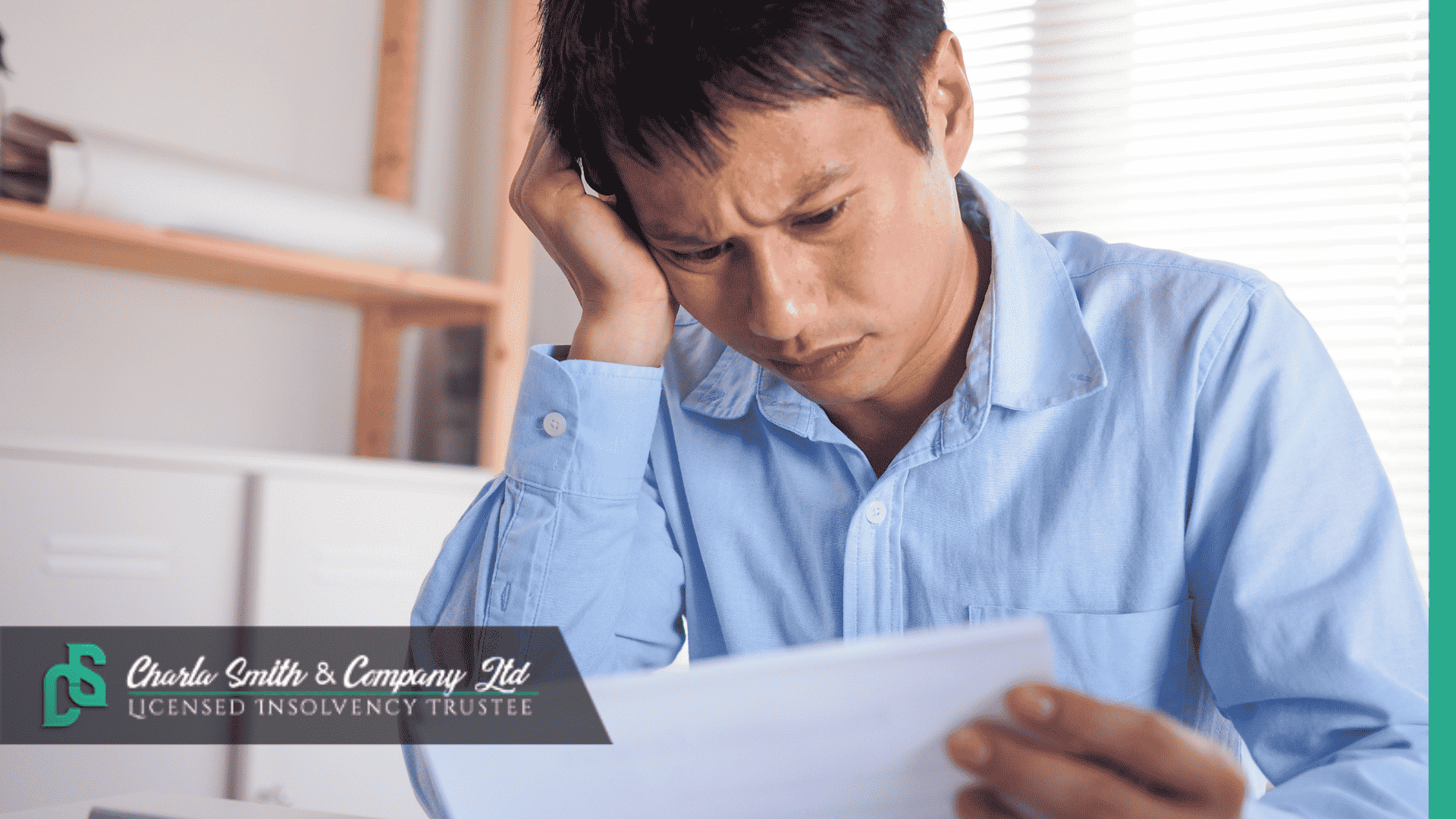
This time of year, a lot of people look forward to receiving a tax refund. For those living on a low income, a tax refund can be highly anticipated as a way to catch up on bills or pay for something they’ve been holding off on, such as a car repair or dental work. Unfortunately, this year might be different for a lot of people.
Individuals whose employment has been impacted by the coronavirus pandemic may find they owe tax this year due to insufficient tax deducted from payments made by the government under COVID-19-related support programs. Some will be surprised to learn they owe tax for the first time in many years.
Others may have been expecting a tax bill, but are unable to pay it this year due to the pandemic's impact on their finances, or other factors.
WHAT HAPPENS WHEN YOU DON'T PAY THE TAX YOU OWE?
Assuming your tax return was prepared correctly, you'll need to pay the amount owing. Even if there's an error, Canada Revenue Agency (CRA) will consider the tax owing until corrections have been filed and processed by the CRA. If you don’t pay the amount they say you owe, you can expect CRA to eventually take one or more of the following steps to collect it:
- Send you paperwork noting that the payment is overdue and requesting you pay it right away
- Have an agent contact you to discuss the overdue payment and make payment arrangements
- Deduct the amount you owe from other government payments you might be expecting, such as the Child Tax Benefit or a future year’s refund
- Garnish your wages by sending a notice to your employer asking that a portion of your paycheck is paid over to them
- Seize money from your bank account
- File a writ against property you own so that funds from a future sale of the property will get paid to them, and potentially even force the sale of the property
- Go after someone else to pay your debt, if they believe that party benefitted from assets you should have used to pay your debts. This can include a spouse, business partner, or purchaser of your assets.
The CRA has special powers that allow them to take these steps to collect tax debt quickly and without giving you advance notice. And while there are taxpayer relief programs that might allow you to avoid further interest and penalties, CRA doesn’t typically just walk away from amounts owing. So it’s important to deal with your tax debt proactively.
HOW DO I DEAL WITH MY TAX DEBT PROACTIVELY?
The first step is to call the CRA to discuss the debt. The agent you speak to won't be authorized to cut you a deal on the amount owing, but they may be willing to allow you to make payments over a period of time. First, they'll probably ask you to provide information about your income and expenses, and they'll want to see that you've exhausted as many options as possible to cut your expenses or borrow money to pay the debt.
Note: CRA collectors will often recommend you take out a loan to pay your taxes. You'll need to make sure you can afford the loan (including the interest charges) before you go this route – if you can’t afford to pay the debt to CRA over time, chances are you can’t afford to pay the loan either.
Hopefully you can work out a plan that's feasible, but sometimes the CRA will insist you pay it quicker than you can afford. If that happens but you still want to try to work with them, we suggest you pay what you can and keep answering their calls and trying to work out a solution. This may be sufficient for them to avoid taking further steps to collect. Keep in mind, though, that CRA will continue charging interest on the unpaid balance until it is paid, and you probably won’t get any government payments such as the Child Tax Benefit while there's an amount outstanding.
If you can’t afford to pay enough to satisfy the CRA and you’re worried they’ll take further steps (or if they’re already taking further steps) you may need a “stay of proceedings”. A stay of proceedings is a legal pause button that stops all of your creditors, including the CRA, from taking further actions. Anything they've already done is done, but they can’t continue any enforcement steps or start new ones while a stay of proceedings is in place. So how do you get a stay of proceedings? The fastest and easiest way is to make a formal insolvency filing. Filing a consumer proposal, a bankruptcy or a notice of intention to file a Division I Proposal are the three main ways an individual can get an immediate and automatic stay of proceedings. As an added benefit, interest and penalties stop being charged as soon as you file, and you won’t have to deal directly with CRA anymore.
HOW DO I MAKE AN INSOLVENCY FILING TO GET A STAY OF PROCEEDINGS?
To get the relief provided by an insolvency filing, you'll need to deal with a Licensed Insolvency Trustee, as only a Licensed Insolvency Trustee can provide those services. The good news is, Licensed Insolvency Trustees are well-versed in dealing with tax debt and typically provide free consultations, where they give advice to those looking for information about options.
The Licensed Insolvency Trustee will work with you to get the necessary information and prepare and file the documents. You do not need to see an intermediary like a credit counsellor or debt consultant to get referred to a Licensed Insolvency Trustee. Contact us directly to avoid unnecessary fees. We'll walk through all of the options with you and give you our honest take on whether you really need to make a formal insolvency filing to deal with your debt.
Disclaimer: This publication provides general information and should be seen as broad guidance only. The information contained herein cannot be relied upon to cover specific situations and you should not act, or refrain from acting, upon this information without obtaining specific professional advice relating to your particular circumstances. Charla Smith & Company Ltd. does not accept or assume any liability or duty of care for any loss arising from any action taken or not taken by anyone in reliance on the information in this publication or for any decision based on it.
FREQUENTLY ASKED QUESTIONS
Q: Canada Revenue Agency wants me to take out a loan to pay my tax debt. Is this a good idea?
Canada Revenue Agency is a creditor you want to avoid owing money to. They have special powers to collect tax debt, which can mess with your life.
That said, if you can't afford to pay the tax debt, you risk being unable to pay the loan you take out to pay it. The loan lender may not have the same special collection powers the CRA has, but if you don't pay it back they can eventually make your life miserable, too.
Generally speaking, if you can get more favorable terms from a lender (lower interest rate or longer payment term) that will allow you to be able to afford to pay off the debt, you should consider this option. Otherwise, you may need to discuss other options with a Licensed Insolvency Trustee. Beyond providing the option of a formal insolvency filing, they can talk to you about budgeting and other considerations that may help you get your finances under control.
Q: How does a consumer proposal help me deal with my tax debt?
Even though the CRA will not negotiate a reduction of the amount owing with a tax debtor, they will typically consider a reduction of the amount owing through a Consumer Proposal. This is because they understand that the individual is insolvent and the case has been reviewed by a Licensed Insolvency Trustee who has assessed that the CRA will get less if the person is forced to file a bankruptcy due to an inability to pay.
With a Consumer Proposal, the amount of the debt that you pay is based on what you can afford (based on the level of your income, your assets, and your family situation). This is often less than the amount owed. If your proposal is accepted and you perform your end of the deal, the unpaid portion is forgiven... even in the eyes of the government.
CHARLA SMITH & COMPANY LTD.

Let us help you get relief from the burden caused by your debt. As a Licensed Insolvency Trustee, Charla Smith & Company are highly trained and experienced in debt relief solutions, and we take great pride in identifying the option that's the best fit for your unique situation. From advice on talking to your creditors to consumer proposals to bankruptcy and everything in between, we’re here to answer questions, guide and advise you so you can take back control of your financial situation. Serving Calgary, AB and surrounding areas.
YOUR TRUSTED CHOICE FOR DEBT RELIEF
With our experience and our caring approach, we will help you find the best option for debt relief based on your unique situation - from advice on talking to your creditors to a consumer proposal or bankruptcy, and everything in between. We are here to lift the burden caused by overwhelming debt.
Contact us today at 1-403-899-3890 for a FREE, confidential, no-commitment meeting, and let us guide you to regaining your financial footing.
